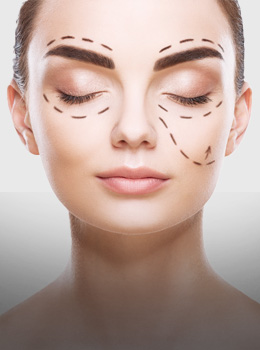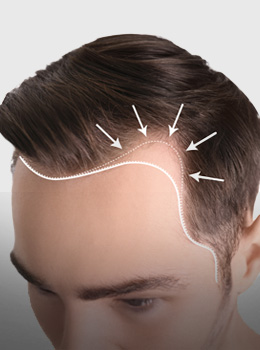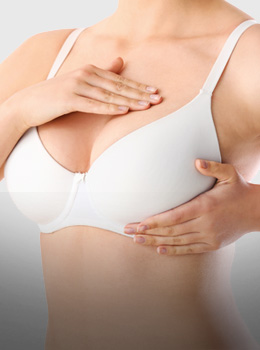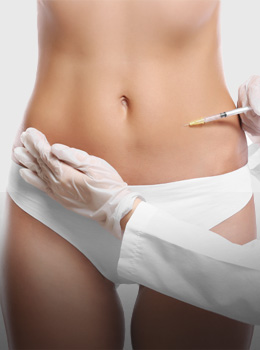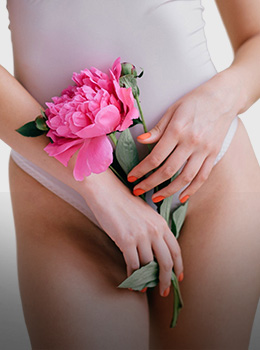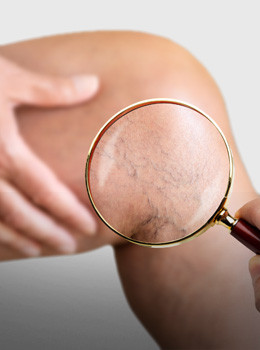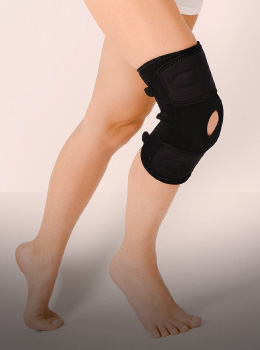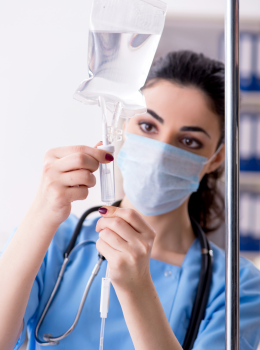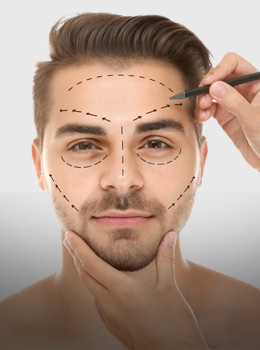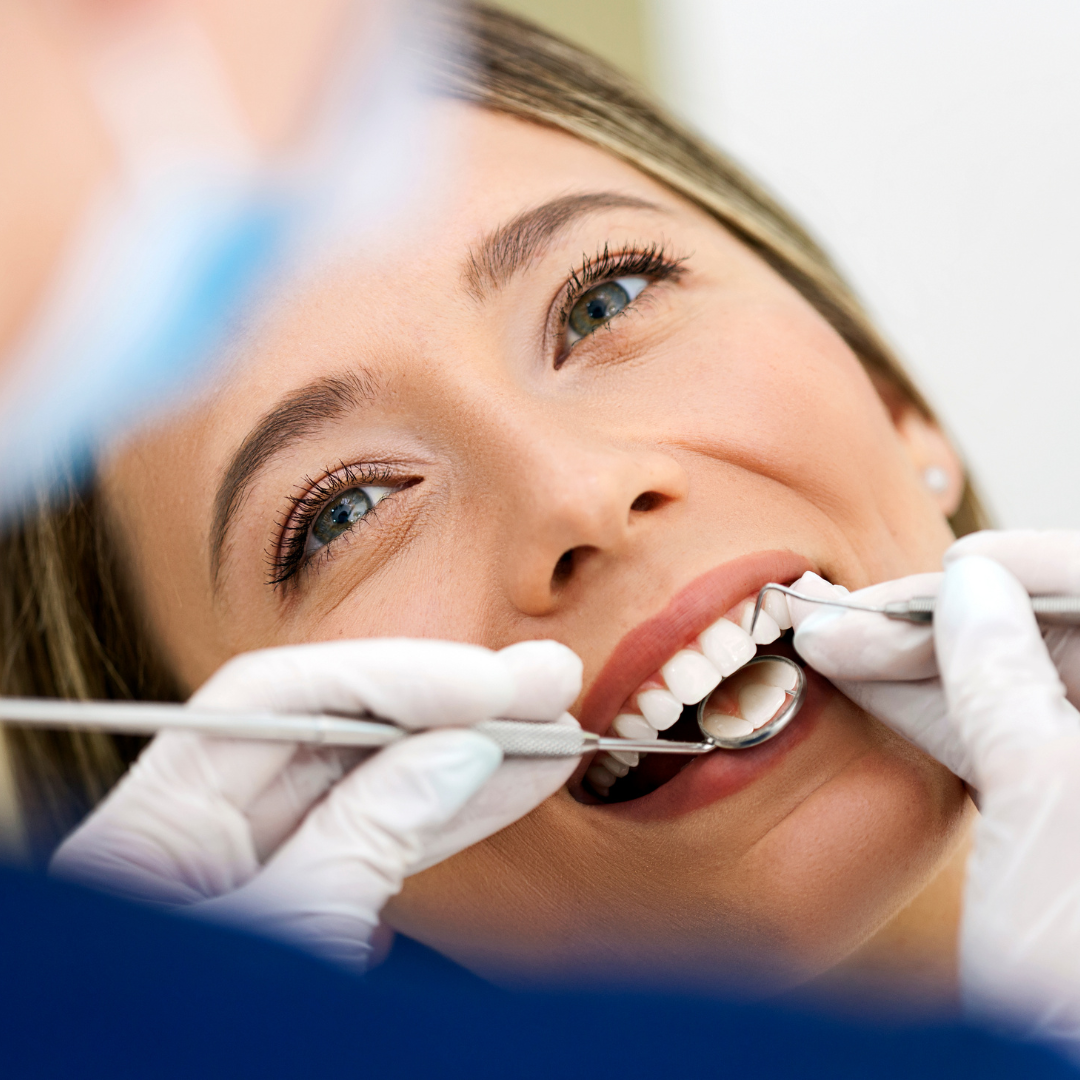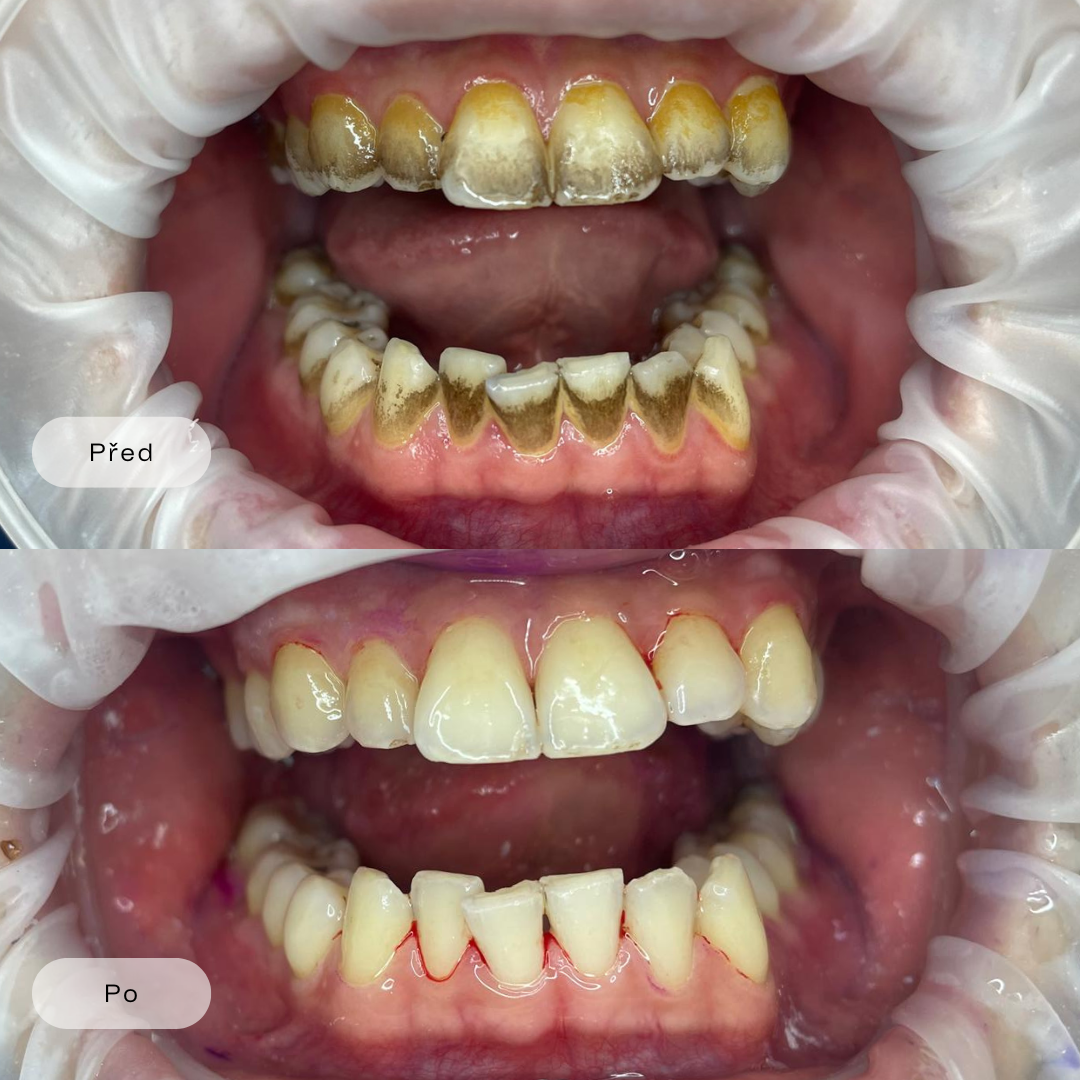Dental hygiene in Pilsen
Perfectly clean teeth and gums
What complications can neglected dental care lead to? And should we really brush them immediately after every meal?
During the first visit, we will assess the condition of the oral cavity, explain and show what is right and what is wrong. If we find something that is not right, we will explain the cause of the problem. We'll also show you how to prevent it. Plaque and tartar are the main causes of diseases such as tooth decay, gingivitis, periodontitis and bad breath.
The dental hygienist then removes the mineralised plaque (tartar) deposits. This removal is not always successful on the first visit. Therefore, it is sometimes necessary to invite the patient for a cleaning. This is always individually assessed by the dental hygienist according to the patient's condition.
At the Medical Institute we show, advise and explain everything
It is also important to remember that a toothbrush and toothpaste alone are not enough. The tooth has five plates that need to be cleaned. It is therefore necessary to use interdental brushes and dental floss as well. It is the insufficiently cleaned interdental space that is a frequent cause of gum disease. Your hygienist or doctor will advise you on which toothbrush to use and, most importantly, recommend which of the range of interdental brushes are suitable for you. And don't be surprised if you walk away with several sizes of toothbrushes to clean between your teeth. Few people are lucky enough to have all their interdental spaces the same size.
The last step is a follow-up visit with the hygienist at an individually set time. The specialist will make sure that you have mastered the brushing technique to make your daily oral hygiene as effective as possible. Alternatively, he or she will re-instruct you in the proper care of your teeth and gums.
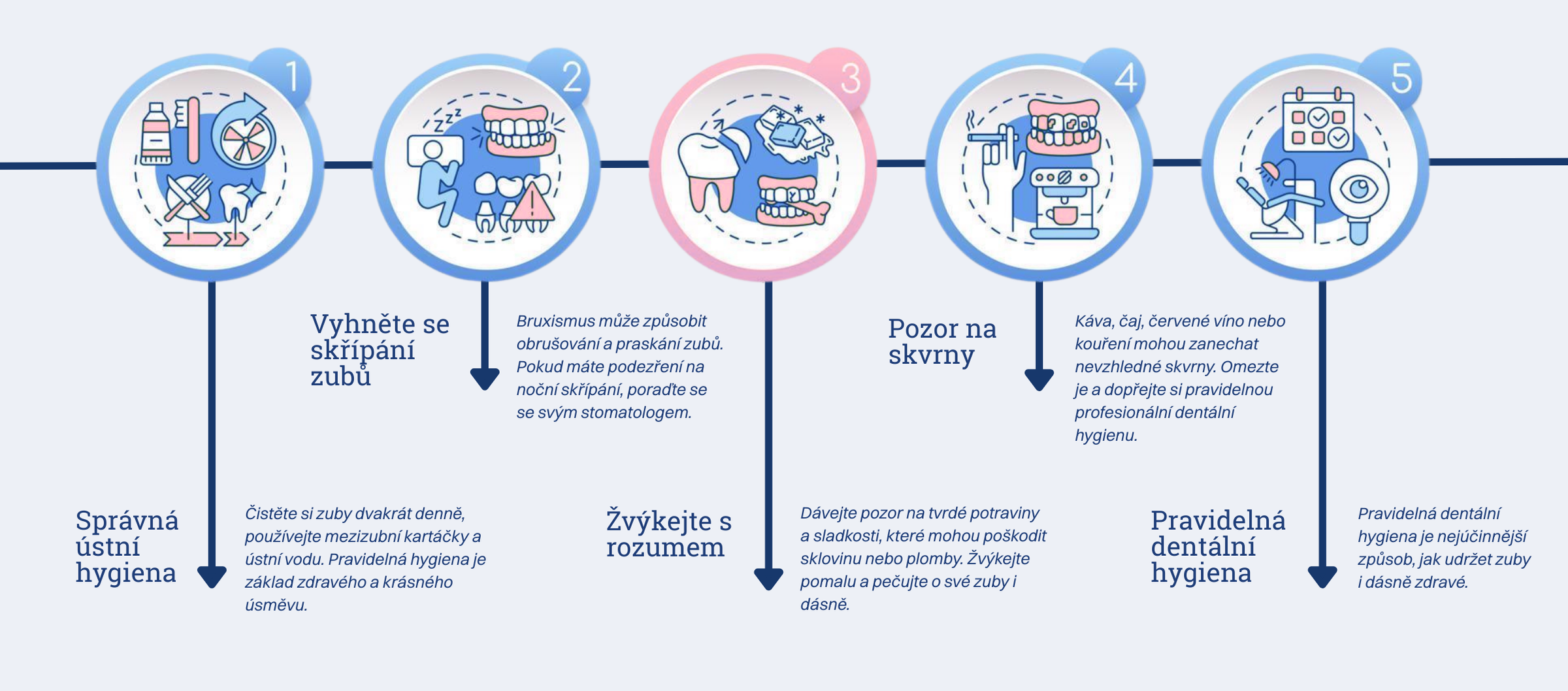
Who is dental hygiene suitable for?
- Dental hygiene is suitable for everyone - regardless of age, dental condition or the presence of dental problems.
- It is important for children, for whom it helps to establish good hygiene habits from their first teeth, as well as for adults who want to prevent tooth decay, gingivitis or periodontitis.
- It is also of great benefit to pregnant women, whose hormonal changes often lead to increased gum sensitivity.
- The treatment is particularly suitable for people with braces, crowns or implants, as plaque builds up more in these areas.
- It also helps smokers and people with pigmentation on their teeth to improve the appearance of their smile and fresher breath.
- Dental hygiene should be a routine part of health care - just like preventive check-ups at the doctor's office. Regular visits help prevent complications and prolong the life of teeth and dental procedures.
How is the treatment carried out?
- First, the dental hygienist performs an initial consultation and examination - assess the condition of the teeth, gums, amount of plaque and tartar.
- He will also give you instructions and show you the correct cleaning technique during your first visit.
- This is followed by the cleaning itself - the tartar is removed both by ultrasound and by hand, and then a rotary brush with polishing paste is used.
- If necessary, sandblasting (Airflow) is applied to remove pigmentation and fine coating.
- This is followed by careful polishing of the teeth for a smooth and shiny surface. This may include the application of a fluoride gel to strengthen the enamel.
- At the end you will receive a personal briefing - The dental hygienist will teach you how to use a toothbrush and interdental appliances correctly and advise you on how to take optimal care of your teeth at home.
- All steps are comfortable and painless.
- The first visit usually lasts 60-90 minutes, with repeat visits reduced to 45-60 minutes.
Why come to us for dental hygiene?
- Dental hygiene at the Medical Institute is more than just routine teeth cleaning - it's professional care that protects the long-term health of your teeth and overall oral environment.
- Thanks to modern methods, state-of-the-art equipment and an individual approach, every visit with us is comfortable, gentle and maximally effective.
- An experienced team of hygienists will take care of the thorough removal of tartar, pigmentation and invisible plaque, which is the main cause of inflammation and decay.
- The treatment also includes sandblasting, polishing and strengthening of tooth enamel, which will make your teeth not only healthy, but also naturally whiter and smoother to the touch.
- And at the Medical Institute, it's not just about the procedure itself - you'll also receive precise advice and care techniques that are tailored to your needs.
- Whether you wear braces, have implants, or just want to keep your smile in perfect shape, you'll find an expert approach here that gets real results.
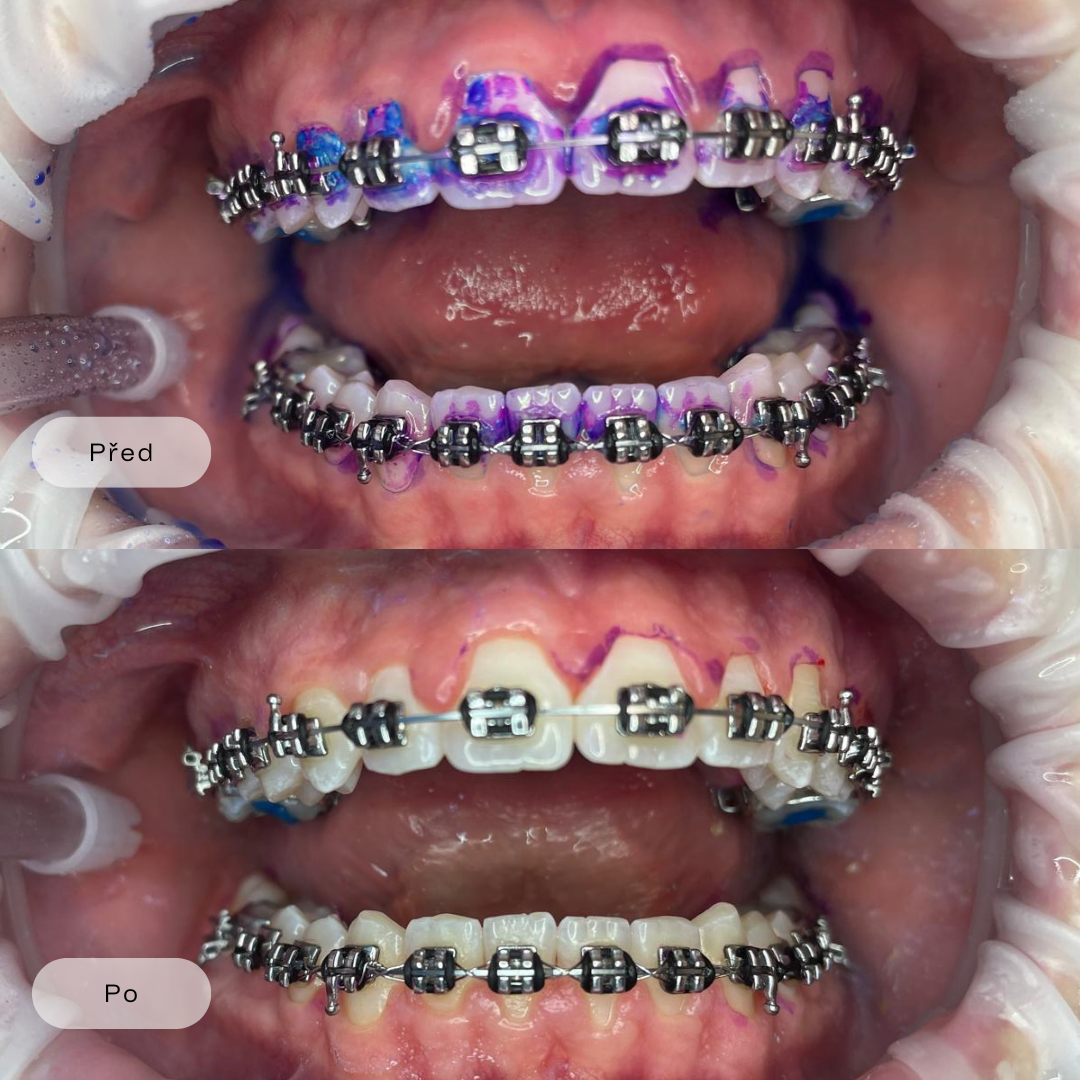
Our dental hygienists look forward to seeing you
Mgr.Tomas Krieger
Dental hygiene price list
First visit (Complete treatment (without sandblasting) motivation and client briefing)
1 600 CZK
First visit (Complete treatment (including sandblasting) motivation and client briefing)
1 850 Kč
Repeat visit (within 12 months)
1 150 CZK
Dental hygiene up to 14 years
990 Kč
Cleaning within 3 months (30 min)
900 - 1100 CZK
Instruction and motivation of the pediatric patient
450 CZK
Briefing and motivation of the adult patient
650 CZK
Additional services
Dental jewellery
950 CZK
